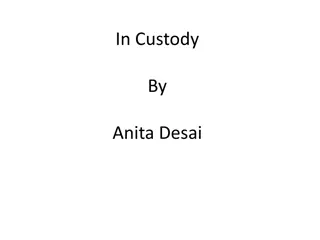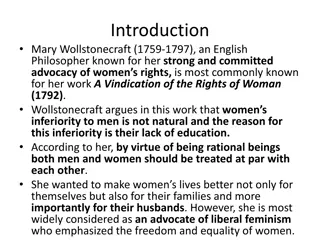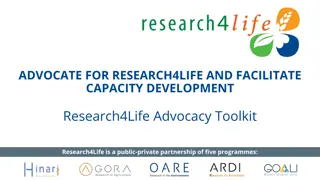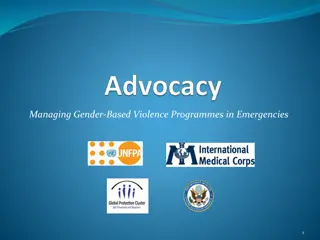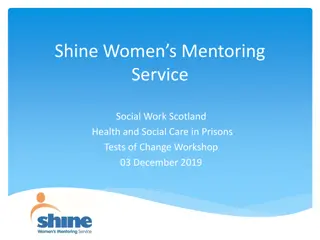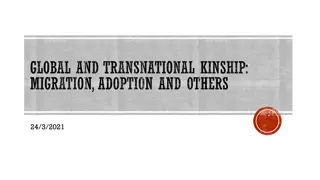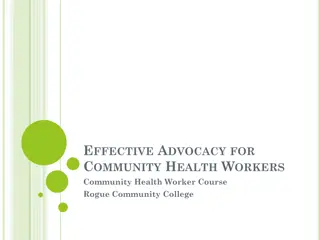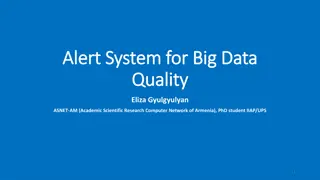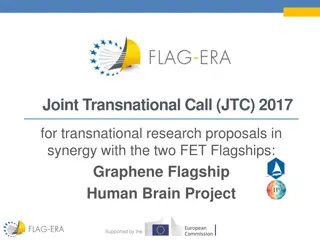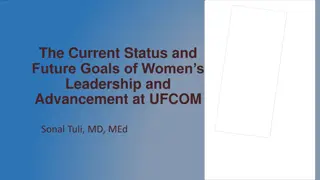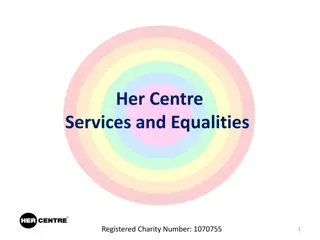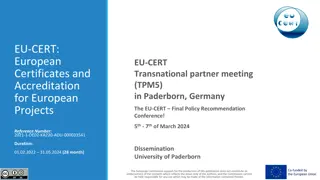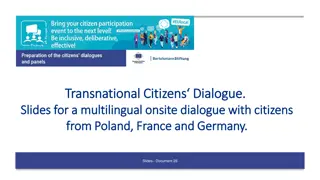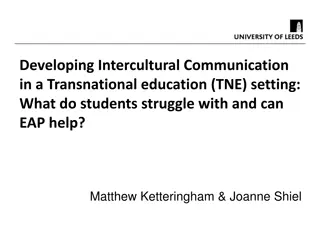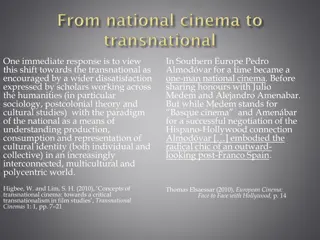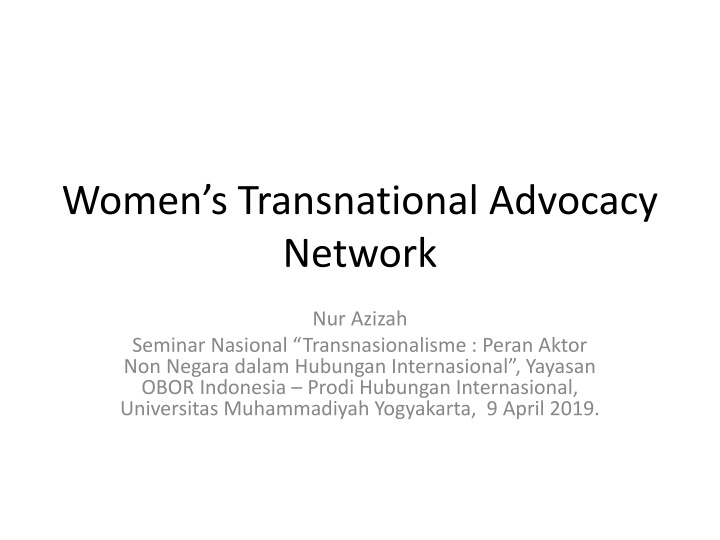
Gender Issues in Indonesia: Advocacy and Challenges
Explore the pressing gender issues in Indonesia, from transnational advocacy networks to child marriage and violence against women. Delve into the role of non-state actors in international relations and the intersection of feminism, human rights, and conflict resolutions.
Download Presentation

Please find below an Image/Link to download the presentation.
The content on the website is provided AS IS for your information and personal use only. It may not be sold, licensed, or shared on other websites without obtaining consent from the author. If you encounter any issues during the download, it is possible that the publisher has removed the file from their server.
You are allowed to download the files provided on this website for personal or commercial use, subject to the condition that they are used lawfully. All files are the property of their respective owners.
The content on the website is provided AS IS for your information and personal use only. It may not be sold, licensed, or shared on other websites without obtaining consent from the author.
E N D
Presentation Transcript
Womens Transnational Advocacy Network Nur Azizah Seminar Nasional Transnasionalisme : Peran Aktor Non Negara dalam Hubungan Internasional , Yayasan OBOR Indonesia Prodi Hubungan Internasional, Universitas Muhammadiyah Yogyakarta, 9 April 2019.
Why Women ? Half of the Population Gender Impact : Discrimination, Marginalization International Feminism : top down strategies (Global Norm ) UNDHR : Man s right Human Right CEDAW UN SC Resolution 1325 : Gender , Peace, Conflict Resolutions
Child Married in Indonesia The 2012 National Socio- Economic Survey (Susenas) The Marriage Law in Indonesia : The minimum legal age of marriage for males is 19, but for females is 16 . women who marry during their teens are unable to finish high school 32.10 % of married children aged 16 to 18 years. 11.13 % of girls marry at the age of 10 to 13 years. Program : Prevention and elimination of child marriage
Violence against Women in Indonesia (Source : National Commission on Women) In 2017 : 348,446 cases In 2016 : 260.000 cases In 2014 : 293,220 cases In 2013 : 279,688 In 2012 : 216,156 Of those figures, around 25 percent were cases of sexual violence.
Joseph Nye The three-dimensional chess game as a symbolic representation of the distribution of power in the world today : Military (State) Economic (Bussiness) transnational relations (NGO) : composed of various types of non state actors (Nye, 2011)
English School International Society Realism : International System is anarchic, since there is no super-state to police the dealings of individual states English School (international society theory), on the other hand argue that the international sphere is better characterized as a society where in members follow rules and expectations.
Realis vs English School / International Society Theory English School / international society theory Realis International System is anarchic, since there is no super-state to police the dealings of individual states The international sphere is better characterized as a society where in members follow rules and expectations.
Transnational Activities Positive Development issues Environment Human Rights Gender Equality Negative Transnational Crimes : Human Trafficking Drug Smuggling Illegal Migration Terorrism ( 9/11 WTC - Tragedy)
Distinction between NGO-INGO-Global NGO NGOs are self-governing, private, not-for-profit organizations that are geared to improving the quality of life for disadvantaged people. Vakil (1997: 2060) Distinction between NGO-INGO-Global NGO NGO is national INGO is rooted in two or more countries. Global NGOs is NGOs which are inherently directed toward international issues and policy making on a global scale.
1990s : an equality of status between governments and NGOs (social partnership) The role of NGOs has dramatically changed over the last few decades Thousands of NGOs attend all UN conferences, they are extremely involved in the drafting of new conventions and their function as observers, agenda setters, and policy implementers More than 3000 organizations have consultative status in the UN.
The Roles of NGO : implementer, catalyst, and partner The implementer role is concerned with the mobilization of resources to provide goods and services to people who need them. Service delivery : as healthcare, microfinance, agricultural extension, emergency relief, and human rights. The catalyst role is an NGO s ability to inspire, facilitate or contribute to improved thinking and action to promote social transformation. Gender and empowerment work, lobbying and advocacy work, and attempts to influence wider policy processes through innovation, and policy entrepreneurship. The partner role ( partnership ) is for NGOs to work with government, donors . capacity building work which seeks to develop and strengthen capabilities. (Lewis, 2007).
Pengaruh Gerakan Perempuan terhadap Perkembangan Agenda PBB Periode 1950- 1970an Akhir 1970an 1990an 1960an Gender Blind Agenda PBB WID (Women in Development) GAD (Gender in Development) Gender Mainstreaming Gender Balanced Decision Making (Women s Kuota in Parliament )
Peran PBB dalam Mendorong Kesetaraan Gender Perserikatan Bangsa-bangsa mencanangkan : UN Decade for Women (1976-1985) Konferensi Dunia tentang Perempuan (World Conference on Women) yang diselenggarakan di : Meksiko City (1975), Copenhagen (1980), Nairobi (1985), Beijing (1995) dan New York (MDGs-2000). MDGs 1.1 Menanggulangi kemiskinan dan kelaparan 1.2 Mencapai pendidikan dasar untuk semua 1.3 Mendorong kesetaraan gender dan pemberdayaan perempuan 1.4 Menurunkan angka kematian anak 1.5 Meningkatkan kesehatan ibu 1.6 Memerangi HIV/AIDS, malaria, dan penyakit menular lainnya 1.7 Memastikan kelestarian lingkungan hidup 1.8 Mengembangkan kemitraan global untuk pembangunan
NGO Uni Eropa Keberadaan Uni Eropa memberi ruang yang semakin luas bagi NGO, termasuk NGO NGO yang bergerak dibidang isu perempuan, untuk berpolitik dan menjalin jejaring antar NGO di berbagai negara anggota Uni Eropa. Uni Eropa mendorong pertumbuhan jejaring transnasional tersebut dengan cara menggelontorkan dana untuk proyek-proyek pembangunan yang dilaksanakan oleh NGO. Misalnya, melalui The European Fund for Regional Development. Untuk dapat mengakses dana ini, sebuah NGO lokal di sebuah negara
NGO - Eropa Eropa harus menunjukkan bahwa mereka mempunyai partner sesama NGO di negara lain di Uni Eropa. Persyaratan semacam ini sengaja dilakukan oleh Uni Eropa untuk mendorong integrasi masyarakat Eropa sehingga siap take off pada tahun 1990an. Para NGO yang bergerak di isu perempuan ini kemudian juga meyakini bahwa kemampuan mereka untuk berjejaring secara transnational akan meningkatkan pengaruh mereka dalam melancarkan advokasi kebijakan.
Salah satu dampak dari keberadaan TANs adalah kemampuannya dalam membangun regime tatakelola pemerintahan yang bersifat supra nasional.
Referensi NYE, Joseph S. The future of power. New York: Public Affairs, 2011.






